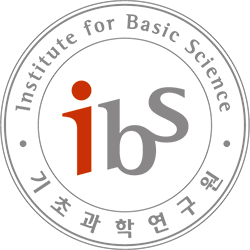Mathematics
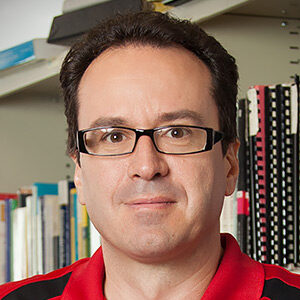
Krešimir Josić
Department of Mathematics, U of Houston, USACollaborative works
Hierarchical Bayesian models of transcriptional and translational regulation processes with delays, Bioinformatics (2021)
Long-range temporal coordination of gene expression in spatially extended synthetic microbial consortia, Nature Chem Biol (2019)
Bayesian inference of distributed time delay in transcriptional and translational regulation, Bioinformatics (2019)
The relationship between deterministic and stochastic quasi-steady-state approximation, BMC Syst Biol (2015)
Emergent genetic oscillations in a synthetic microbial consortium, Science (2015)
The Validity of Quasi-Steady-State Approximations in Discrete Stochastic Simulations, Biophy J (2014)
Molecular mechanisms that regulate the coupled period of the mammalian circadian clock, Biophy J (2014)
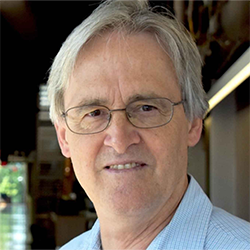
John Tyson
Department of Biological Sciences, Virginia Tech, USACollaborative works
Time-keeping and decision-making in living cells: Part II, Interface Focus (2022)
Time-keeping and decision-making in living cells: Part I, Interface Focus (2022)
Misuse of the Michaelis-Menten rate law for protein-interaction networks and its remedy, PLoS Comput Biol (2020)
A systems-driven experimental approach reveals the complex regulatory distribution of p53 by circadian factors, PNAS (2016)

Sookkyung Lim
Mathematical Sciences, University of Cincinnati, USACollaborative works
Modeling reveals a key mechanism for light-dependent phase shifts of Neurospora circadian rhythms, Biophy J (2018)
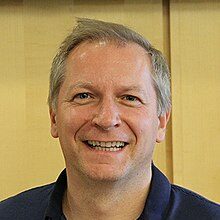
Grzegorz Rempala
Division of Biostatistics and Mathematical Biosciences Institute, The Ohio State University, USACollaborative works
Reduction for stochastic reaction network with multi-scale conservation, SIAM Multiscale Model Simul (2017)
Beyond Michaelis-Menten: Accurate and efficient estimation of enzyme kinetic parameters, Scientific Report (2017)
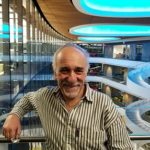
Eduardo D. Sontag
Departments of Electrical and Computer Engineering and of Bioengineering, Northeastern University, USACollaborative works
Derivation of stationary distributions of biochemical reaction networks via structure transformation, Communications Biology (2021)
Reduction of Multiscale Stochastic Biochemical Reaction Networks using Exact Moment Derivation, PLoS Comput Biol (2017)
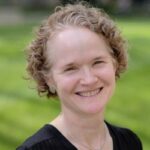
Victoria Booth
Department of Mathematics, U of Michigan, USACollaborative works
Personalized sleep-wake patterns aligned with circadian rhythm relieve daytime sleepiness, iScience (2021)

Daniel Forger
Department of Mathematics, U of Michigan, USACollaborative works
Inferring causality in biological oscillators, Bioinformatics (2021)
A Period2 Phosphoswitch Regulates and Compensates Circadian Period, Molecular Cell (2015)
Modeling and Validating Chronic Pharmacological Manipulation of Circadian Rhythms, CPT:PSP (2013)
A Mechanism for Robust Circadian Timekeeping via stoichiometric balance, Mol Syst Biol (2012)
On the Existence and Uniqueness of Biological Clock Models Matching Experimental Data, SIAM J APPL MATH (2012)
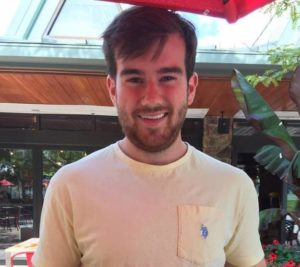
Jonathan Tyler
Department of Mathematics, U of Michigan, USACollaborative works
Inferring causality in biological oscillators, Bioinformatics (2021)

Jinsu Kim
Department of Mathematics, POSTECH, Republic of KoreaCollaborative works
Computational translation framework identifies biochemical reaction networks with special topologies and their long-term dynamics, SIAM J APPL MATH (2023)
Derivation of stationary distributions of biochemical reaction networks via structure transformation Communications Biology (2021)
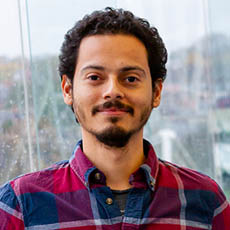
Eder Zavala
Institute of Metabolism and Systems Research MRC Skills Development Fellow, University of BirminghamCollaborative works
Wearable technology and systems modeling for personalized chronotherapy, Curr. Opin. Syst. Biol. (2020)

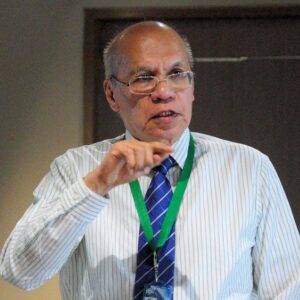
Eduardo R. Mendoza
Department of Mathematics and Statistics, De La Salle University, Republic of the PhilippinesManagement and control of schistosomiasis in Agusan del Sur, Philippines: A modeling study (submitted)
Positive equilibria of power-law kinetics on networks with independent linkage classes (submitted)
Weakly reversible CF-decompositions of chemical kinetic systems, accepted for Journal of Mathematical Chemistry

Biology
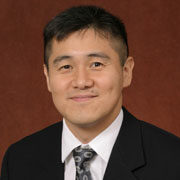
Choogon Lee
Dept. of Biomedical Sciences & Neuroscience, Florida State U., USACollaborative works
Wake-sleep cycles are severely disrupted by diseases affecting cytoplasmic homeostasis, PNAS (2020)
Stability of the circadian system requires a robust degradation of PERIOD, Current Biol (2017)
A tunable artificial circadian clock in clock-defective mice, Nature Commun (2015)

David Virshup
Programme in Cancer and Stem Cell Biology, Duke-NUS Medical School, SingaporeCollaborative works
Mutation of a PER2 phosphodegron perturbs the circadian phosphoswitch, PNAS (2020)
CK1 protein kinases prime the PER2 circadian phosphoswitch, PNAS (2018)
A Period2 Phosphoswitch Regulates and Temperature Compensates Circadian Period, Molecular Cell (2015)
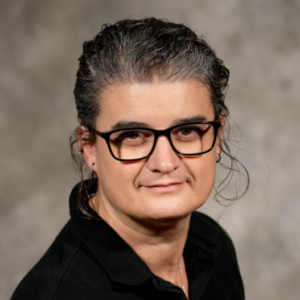
Carla Finkielstein
Department of Biological Sciences, Virginia Tech, USACollaborative works
A systems biology approach identifies hidden regulatory connections between the circadian and cell-cycle checkpoints, Front Physiol (2020)
Distinct control of PERIOD2 degradation and circadian rhythms by the oncoprotein MDM2, Science Signal (2018)
A systems- driven experimental approach reveals the complex regulatory distribution of p53 by circadian factors, PNAS (2016)

Christian I. Hong
Pharmacology and Systems Physiology, U of Cincinnati, USACollaborative works
Modeling reveals a key mechanism for light-dependent phase shifts of Neurospora circadian rhythms, Biophys. J. (2018)
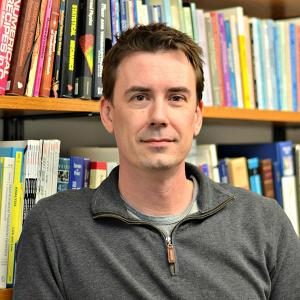
Matthew Bennett
Department of Biosciences, Rice University, USACollaborative works
Long-range temporal coordination of gene expression in spatially extended synthetic microbial consortia, Nature Chem Biol (2019)
The relationship between deterministic and stochastic quasi-steady-state approximation, BMC Syst Biol (2015)
Emergent genetic oscillations in a synthetic microbial consortium, Science (2015)
The validity of quasi-steady-state approximations in discrete stochastic simulations, Biophys. J. (2014)
Molecular mechanisms that regulate the coupled period of the mammalian circadian clock, Biophys. J. (2014)

Dae-Jin Yun
Department of Biomedical Science & Engineering, Konkuk University, Republic of KoreaCollaborative works
Rheostatic control of ABA signaling through HOS15-mediated OST1 degradation, Molecular Plant (2019)

Woe Yeon Kim
Plant Molecular Biology and Biotechnology Research Center, Gyeongsang National University, Republic of KoreaCollaborative works
Rheostatic control of ABA signaling through HOS15-mediated OST1 degradation, Molecular Plant (2019)


Sara Aton
Department of Molecular, Cellular, and Developmental Biology, U of MichiganCollaborative works
Possible “non-clock” functions of circadian clock genes – Potential roles in sleep, stress, and memory, Biochemical Pharmacology (2021)

Matias D. Zurbriggen
Institute of Synthetic Biology and CEPLAS, Heinrich Heine University Düsseldorf, GermanyCollaborative works
Possible “non-clock” functions of circadian clock genes – Potential roles in sleep, stress, and memory, Biochemical Pharmacology (2021)
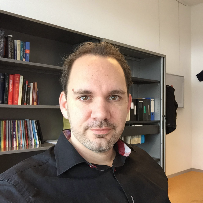
Robbert Havekes
Department of Biology, University of Pennsylvania, USAGroningen Institute for Evolutionary Life Sciences (GELIFES), University of Groningen, The Netherlands
Collaborative works
Possible “non-clock” functions of circadian clock genes – Potential roles in sleep, stress, and memory, Biochemical Pharmacology (2021)

Yoshitaka Fukada
Department of Biophysics and Biochemistry (UG), Department of Biological Sciences (GR), Graduate School of Science, University of Tokyo, JapanRhythmic transcription of Bmal1 stabilizes the circadian timekeeping system in mammals (submitted)
Mutation of a PER2 phosphodegron perturbs the circadian phosphoswitch, PNAS (2020)

Sooyeon Suh
Department of Psychology, Sungshin Women’s University, Republic of KoreaValidation of a Korean version of the Metacognitions Questionnaire-Insomnia (MCQ-I) and development of shortened versions of the rating scale: a random forest approach, Sleep Med. (2022)

Mathias Foo
School of Engineering, University of Warwick, Coventry University, United KingdomModeling of Plant Circadian Clock for CharacterizingHypocotyl Growth under Different Light QualityConditions, in silico Plants (2022)
Medicine

Eun Yeon Joo
Department of Neurology, Neuroscience Center, Samsung Medical Center, Republic of KoreaCollaborative works
Personalized sleep-wake patterns aligned with circadian rhythm relieve daytime sleepiness, iScience (2021)
A real-time, personalized sleep intervention using mathematical modelling and wearable devices, Sleep (2023)

Su Jung Choi
Graduate School of Clinical Nursing Science, Sungkyunkwan University, Republic of KoreaCollaborative works
Personalized sleep-wake patterns aligned with circadian rhythm relieve daytime sleepiness, iScience (2021)
A real-time, personalized sleep intervention using mathematical modelling and wearable devices, Sleep (2023)

Jeong Whun Kim
Department of Otorhinolaryngology, Seoul National University Bundang Hospital, Republic of KoreaCollaborative works
Combined unsupervised-supervised machine learning for phenotyping complex diseases with its application to obstructive sleep apnea, Scientific Reports (2021)

Young Il Koh
Department of Internal Medicine, Seoul National University Hospital, Republic of KoreaCollaborative works
Chemotherapy delivery time affects anti-lymphoma treatment outcome in a sex-dependent manner (submitted)

Jee Hyun Kim
Department of Neurology, Ewha Womans University Medical Center, Republic of KoreaCollaborative works
Imputing Missing Sleep Data from Wearables with Neural Networks in Real-World Settings, Sleep (2023)
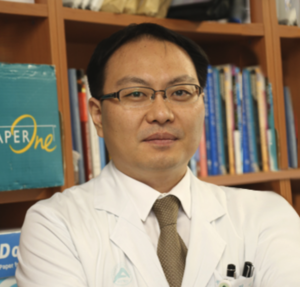
Seockhoon Chung
Department of Psychiatry, Asan Medical Center, University of Ulsan College of Medicine, Republic of KoreaCollaborative works
Validation of a Korean version of the Metacognitions Questionnaire-Insomnia (MCQ-I) and development of shortened versions of the rating scale: a random forest approach, Sleep Med. (2022)

Heon-Jeong Lee
Department of Psychiatry, Korea University College of Medicine, Republic of KoreaChronobiology Institute, Korea University, Republic of Korea
Collaborative works
Highly Accurate Prediction of Mood Episodes in Mood Disorder Patients Using Sleep and Circadian Rhythm Features from Wearables (Under Review in Nature Mental Health)
Causal Dynamics of Sleep, Circadian Rhythm, and Mood in Major Depression and Bipolar Disorder Patients: Insights from Longitudinal Wearable Device Data, (Under Review in eBioMedicine)
Pharmacology
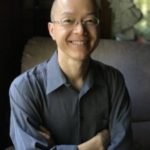
Cheng Chang
Clinical Pharmacology, Pfizer Global Product Development, Pfizer Inc, USACollaborative works
Systems approach reveals photosensitivity and PER2 level as determinants of clock modulator efficacy, Mol Syst Biol (2019)
Modeling and Validating Chronic Pharmacological Manipulation of Circadian Rhythms, CPT:PSP (2013)
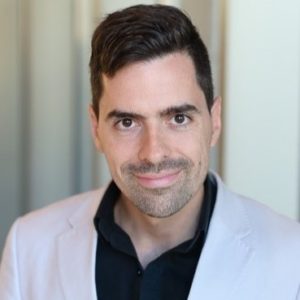
Francois Gaudreault
Clinical Pharmacology and Pharmacometrics, Biogen Inc, USACollaborative works
Systems approach reveals photosensitivity and PER2 level as determinants of clock modulator efficacy, Mol Syst Biol (2019)

Hwi‐yeol Yun
College of Pharmacy, Chungnam National University, Republic of KoreaCollaborative works
Beyond the Michaelis-Menten: Prediction of in vivo clearance for drugs with low KM, Clin Transl Sci (2020)
Beyond the Michaelis-Menten: Accurate Prediction of Drug Interactions through Cytochrome P450 Induction, CPT (2023)
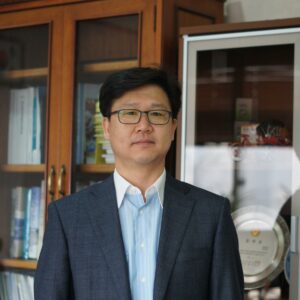
Sang Kyum Kim
College of Pharmacy, Chungnam National University, Republic of KoreaCollaborative works
Beyond the Michaelis-Menten: Prediction of in vivo clearance for drugs with low KM, Clin Transl Sci (2020)
Beyond the Michaelis-Menten: Accurate Prediction of Drug Interactions through Cytochrome P450 Induction, CPT (2023)

Jungwoo Chae
College of Pharmacy, Chungnam National University, Republic of KoreaCollaborative works
Beyond the Michaelis-Menten: Accurate Prediction of Drug Interactions through Cytochrome P450 Induction, CPT (2023)

